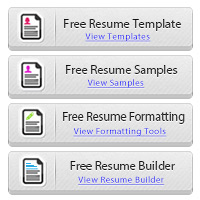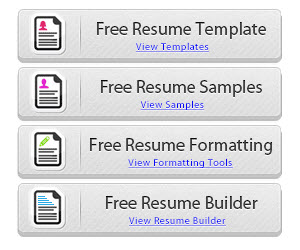Resume Objective, Please Stop!
Any HR recruiter will tell you that the section they are most likely to be annoyed with is the resume objective. Why are they still around?
Here’s why you should cut out the objective statement for a resume and focus on more meaningful professional summary, instead:
Resume objectives make a terrible first impression
From experience a recruiter or hiring manager just spares around 30 seconds or less to gloss over a resume to see if anything stands out to make it worth their while. An objective by itself says little to make your resume stand out and in reality makes a terrible first impression.
Think about your target audience for a second. Are you trying to talk about what the recruiter wants or what you want? A resume objective that talks about why you want to work in a world class organization sounds more like an outdated practice that is thought by an 80 year old career coach.
Resume objectives are too reminiscent of a bygone era: Let’s face it, resume objectives were created as a resume element back in the old days when people had plenty of time to read through pages of meaningless content and make sure that the aspirations of a candidate match those of the company. (Wow even just writing that reminds me of a 1950’s employee training video)
By the way meaningless content is telling me that you are detail oriented and organized for example; cut that out, unless you can back it up by some sort of fact under a specific job
Stay relevant and give your resume a more professional look and feel by taking out meaningless resume objectives and incorporate more contemporary resume styles in your approach.
So you’ve got rid of the objective, what do you put there instead?
A professional summary
A professional looking summary of your skills goes a long way to making you appear like the credible candidate, deserving of an interview.
Here’s why a summary works better than a resume objective
A professional summary says a lot more about you than a vague resume objective ever could. Too often, recruiters have been faced with resume objectives like these
Resume Objective Examples
- Looking for a job in the communications industry
- Looking for a long term career with a stable employer
- Looking for a career where I can apply my education and experience
Do these resume objective samples we listed above tell the recruiter anything about why they should be hiring you or what skills you have that can help match you to the job opening?
Did you even read the job description? (That is what I’m thinking when I see a resume objective)
Instead, add a sharp summary to the top of your resume that talks about your current profession or abilities, along with what skills you have to offer, summarized in a couple of crisp bullet points. Recruiters who look at this will get a better idea of what kind of expertise you can bring to the firm and are more likely to call you back to learn more.
Professional Summary Example
Give the most important info first
With a double Bachelor’s degree in Human Resources and General Management along with a solid track record in account management, new business development, and project management in competitive high-tech markets will help me achieve success quickly as a “TITLE OF POSITION”.
Highlight Technical Skills (the ones which appear first in the Job Description)
I have thorough command of Microsoft Excel (auto fill, sorting and advanced filtering, concatenation, conditional formatting, vlookup, pivot tables, If analysis, conditional sum, average, count, macros and charts) scoring 100% on power user testing
Touch on soft skills (The ones that you see mentioned in the job description)
I am very responsive and customer-driven; able to manage a high workload (80+ clients); able to build rapport with customers, develop long-term relationships, anticipate needs and make appropriate recommendations. As an individual who takes pride in everything I accomplish, I would be a positive addition to any team looking for a diverse individual to handle multiple projects.
A few things to keep in mind
Keep it simple – Rather than a meandering objective that talks about what you want out of life and your new company, a professional summary keeps your resume simple and easy to read. I find it easier to write one after the resume is complete
Add no more than ten lines to your summary statement to talk about what sort of professional experience you’ve had so far.
If you are somebody with no experience, write a brief overview about the projects you’ve worked on and what sort of skills you can bring to the firm.
Remember that less is more and always make it relevant to the position you are applying for. Make it easy on yourself by writing in such a manner that allows you to replace certain titles or skills to speed up the job search.
This is the type of information that will make recruiters stop to quickly read. It’s more effective than a cover letter in my opinion and tells me that you didn’t blindly apply for this position.
A professional summary is more likely to catch the eye of a discerning hiring manager than a resume objective that contains fluff which we recruiters have learned to ignore
Get cracking on that great resume and as always, let me know if you have any questions. Subscribe to our newsletter for a chance to win a free resume review[subscribe2]


1 thoughts on “Resume Objective, Please Stop!”
Comments are closed.